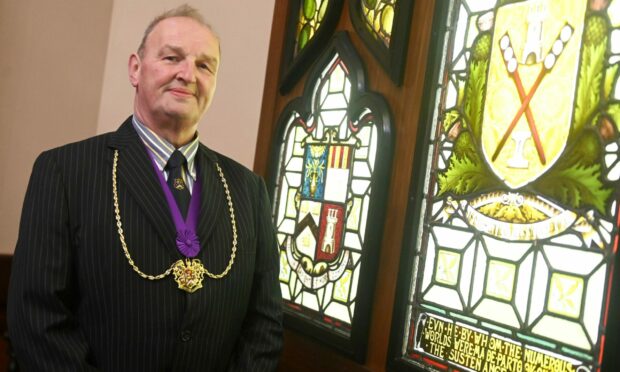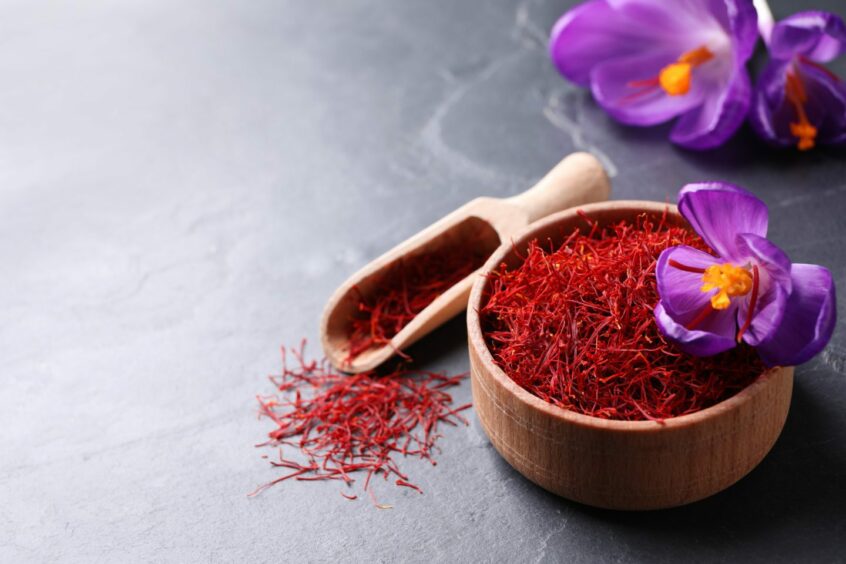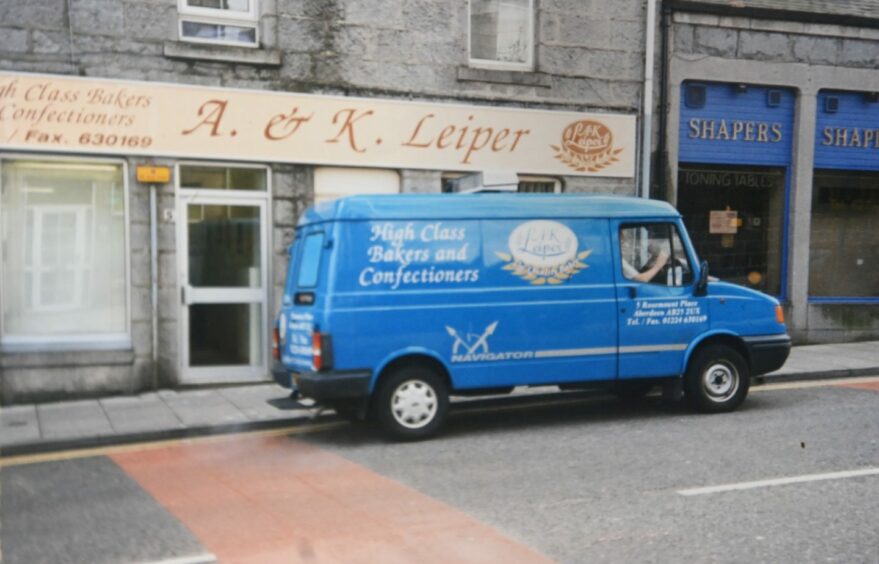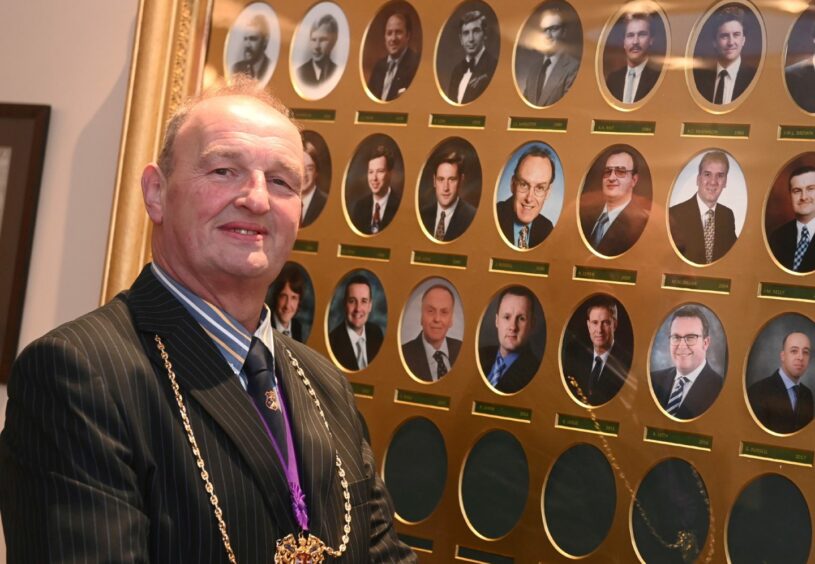The story of Andy Leiper baking the world’s most expensive loaf of bread started on a Wednesday afternoon, when a large car with blacked-out windows pulled up to his Aberdeen bakery.
Four people got out, two men and two women, who were dressed in immaculate hijabs.
“I thought to myself,” Andy recalls. “Who the hell is that coming into the shop?”
It was 2006, and Andy didn’t know it then but the four were representatives of the Sultan of Brunei, a semi-regular visitor to Aberdeen because of his country’s oil links.
The sultan was one of the richest people in the world and held an honorary degree from the University of Aberdeen. That degree has since been revoked because of Brunei’s repressive anti-LGBT laws.
He also held expensive tastes. His people were looking for someone with the skill to bake bread made with saffron, a spice that is literally worth its weight in gold.
Enter Andy, veteran baker and in 2006 the owner of the Granite City bakery on Rosemount Place.
In a career that spans decades and includes a host of weird stories, that day in Aberdeen stands out as one of the weirdest.
“The people, they asked me, ‘Will you make a bespoke product for us?’” Andy recalls. “And I said: ‘I can make anything you want.’”
Making pies for Pittodrie
Andy Leiper’s first baking job was as a 15-year-old apprentice under renowned Aberdeen baker Alex Ross on Chapel Street.
“If I’m 100% honest, it was either do that or get expelled from school,” Andy says, who is now 61. “I didn’t like school. I just wanted to work.”
Alex, whose son still owns Ross of Chapel Street bakery, was a guiding force in Andy’s life, teaching him the ins and outs of the baking trade.
Sometimes the lessons were learned the hard way. The Chapel Street bakery had the pie contract for Pittodrie and during games Andy would ferry dozens of overladen wooden crates up and down the steps of the Beach End.
A stint offshore and a switch to London
Other lessons were less physical, but stayed longer.
“Forty-five years later I can still remember Alex’s pancake recipe!” Andy says. “I used it my whole baking career.”
In 1979, his apprenticeship over, Andy went offshore to bake, working 12-hour shifts through the night.
Already a workaholic, Andy would volunteer for extra shifts beyond the two-week on, two-weeks off schedule – much to the displeasure of his wife.
On her orders, in 1982 Andy took a job back onshore, at Crawfords bakery in Banchory. When that closed, he went to London for a job with Panificio Italiano, a huge bakery in Wembley owned by a Sicilian businessman called Piero Scacco.
His wife, with new son David in tow, soon followed Andy south. But despite nine happy months in London, including seeing George Michael’s Wham! In concert, the couple returned to Banchory.
Two days to work out a recipe for saffron bread
Andy baked six loaves of saffron bread for the Sultan of Brunei using a pillbox-sized tub of saffron that one of the sultan’s people returned with that day.
The tub contained one ounce of saffron. At the time, the spice sold for £7,500 per 100g, making one ounce worth just over £2,000.
Saffron is so expensive because of the way it is made – by crushing the stigmas of crocus flowers grown in Morocco or Madagascar (the stigma is where the pollen germinates).
You need 125 crocuses to make just 1g of saffron.
Having never baked with the spice before – or even seen it – Andy needed some time to work up a recipe.
He was told he had two days.
“I made a test batch, and I remember the bakery was filled with this floral smell,” he says. “You could smell it all the way down the street!”
Burger buns and the advent of BSE
In 1983 and settled back in the north-east with his family, Andy tried to join the police.
When that failed, he returned to what he knew best – with the aid of a £5,000 bank loan he bought a bakery on South Crown Street.
A&K Leiper (the K belonged to his wife Karen) opened on February 17, 1984.
Andy’s reputation quickly grew and before long he was an established part of Aberdeen’s baking scene. Among other successes, A&K Leiper supplied the buns to almost two-thirds of Aberdeen’s burger vans.
But when cows across the UK started coming down with a disease called Bovine Spongiform Encephalopathy, or BSE, Andy foresaw the demise of the traditional sawdust-floored bakers and piemakers.
He needed to move with the times, so at the turn of the decade, Andy sold A&K and opened up Granite City on the corner of Rosemount Place and Skene Square.
The new shop was modern, making it easier to maintain new hygiene regulations brought in on the back of the BSE scare.
“Edwina Currie [the then-UK health minister] was on TV telling people to give the dreaded pies and pasties a miss,” Andy remembers.
“The trade just slumped, and that was when we lost a lot of the family butchers in Aberdeen because environmental health didn’t want things like sawdust on the floor and wooden rolling pins.”
Andy spent a fortune bringing Granite City up to the new standards, but it saved his business.
So, in 2006, when the Sultan of Brunei checked into the Marcliffe Hotel in Pitfodels and felt the need for some saffron bread, there was only one place for his staff to go.
Granite City Bakery.
How much for the world’s most expensive loaf of bread?
The big question is, of course, how much did the world’s most expensive loaf of bread cost?
Andy, with his businessman’s head for numbers, has run the sums.
“I used five pounds of flour and all the other ingredients,” says Andy, who added eggs, sugar and salt to make the rich dough the sultan demanded.
He then added about three-quarters of the tub of saffron – equal to about £1,575.
From that he carved out six loaves and 12 plaited buns, which he fired immediately into the oven.
The final cost? Andy puts it down to about £120 per loaf, or £720 for the batch.
And the buns? A steal at just £11 each.
It was, Andy maintains to this day, “the world’s most expensive loaf of bread”.
A new role as Master of Hospital at Trinity Hall
Andy retired from the baking business in 2009 when he sold Granite City to a property developer. The site is now home to a computer repair shop.
Since then, Andy has built a new life for himself as the head of Aberdeen’s bakers guild at Trinity Hall.
Here, among the hall’s medieval relics and hundreds of paintings and photos of past guild members, he oversees the ceremonial functions of the Seven Incorporated Trades of Aberdeen, the city institution that dates back to the 12th century.
It is here too that Andy regales visitors with tales from his baking past, such as the time he baked for the Queen Mother and Princess Anne.
But it is the story of the sultan and his saffron bread that animates Andy the most. Especially when he remembers how much he charged for the world’s most expensive loaf.
“The saffron was given to me, so I couldn’t charge them the full price,” he says in disbelief.
“Would you believe, I think I actually charged them 60 quid.”




